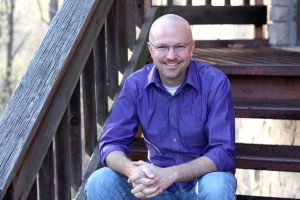
In the 1970s, psychologist Bruce Alexander performed an experiment that has come to be known as the "Rat Park." {1] Previous experiments had shown that when rats were left alone in a cage with two bottles, one filled with water and the other with heroin or cocaine, that a rat would choose the drugs over the water until they overdosed and died. But how does this relate to relationships in recovery?
What would happen, he wondered, if the rats had the choice to interact with other rats instead of being isolated? Believing that environment affects behavior when it comes to using an addictive substance, he put rats into cages where they were free to drink from the drugs AND engage with other rats. It turns out they preferred being with other rats and interacting with the objects in the cage and paid far less attention to the drugs.
Recently, researchers at the National Institute on Drug Abuse wanted to put a twist on the study to better understand the role of choice and the power of relationships in recovery and social interactions when it comes to addiction. Their research confirms and strengthens the idea that social engagement is an essential source of help to those dealing with drug addiction. [2]
In the first study, rats were placed in a cage that had both the drugs and other rats. In the new study, rats were initially trained to press a lever and receive a dose of methamphetamines. They did this for several days.
Then, the rats were given a choice between two levers. One would provide a hit of methamphetamines, while a second lever would open a door to be with other rats. The rats chose to open the door to be with other rats 90 percent of the time!
Not only did social engagement win out over drug use, but the rats that chose abstinence also showed no signs of increased cravings over time. The lead researcher concluded that "social reward has remarkable protective and restorative effects" in the studies of rats.
 Finally, the study found that rats that choose socializing over drug use showed less addictive behaviors a month later than rats who were forced to be abstinent during that time.
Finally, the study found that rats that choose socializing over drug use showed less addictive behaviors a month later than rats who were forced to be abstinent during that time.
These two studies should motivate both those who want to recover and those who treat addiction to consider how to incorporate more socially rewarding activities into recovery. Here are some helpful questions to consider:
- What can I do to increase social interaction in my life to improve my chances of recovery?
- What types of social interactions do I most enjoy?
- How can I set up support systems and routines to help me choose social engagements?
- How do I improve my social skills so I can better connect with others (I recommend the TED Talk, "10 Ways to Have a Better Conversation" by Celeste Headlee)?
Consider not only how can you be around people, but also how can you better connect with others. Not only can you be helped by relating to others, but you might even end up being a lifeline for someone else. Relationships in recovery can work.
REFERENCES:
[1] Sederer, L. I. (2019, June 10). What Does "Rat Park" Teach Us About Addiction? Retrieved October 21, 2019, from https://www.psychiatrictimes.com/substance-use-disorder/what-does-rat-park-teach-us-about-addiction.
[2] National Institute on Drug Abuse. (2019, August 23). Rats Prefer Social Interaction to Heroin or Methamphetamine. Retrieved October 21, 2019, from https://www.drugabuse.gov/news-events/nida-notes/2019/08/rats-prefer-social-interaction-to-heroin-or-methamphetamine.utm_source=daRSS&utm_medium=email&utm_campaign=da-researcherdigest
[3] Headlee, C. (2015, May). 10 ways to have a better conversation. Retrieved October 21, 2019, from https://www.ted.com/talks/celeste_headlee_10_ways_to_have_a_better_conversation?language=en.
About the Author:
 Travis Stewart, LPC has been mentoring others since 1992 and became a Licensed Professional Counselor in 2005. His counseling approach is relational and creative, helping people understand their story while also building hope for the future. Travis has experience with a wide variety of issues which might lead people to seek out professional counseling help. This includes special interest in helping those with compulsive and addictive behaviors such as internet and screen addiction, eating disorders, anxiety, and perfectionism. Specifically, he has worked with eating disorders since 2003 and has learned from many of the field’s leading experts. He has worked with hundreds of individuals facing life-threatening eating disorders in all levels of treatment. Travis' website is wtravisstewart.com
Travis Stewart, LPC has been mentoring others since 1992 and became a Licensed Professional Counselor in 2005. His counseling approach is relational and creative, helping people understand their story while also building hope for the future. Travis has experience with a wide variety of issues which might lead people to seek out professional counseling help. This includes special interest in helping those with compulsive and addictive behaviors such as internet and screen addiction, eating disorders, anxiety, and perfectionism. Specifically, he has worked with eating disorders since 2003 and has learned from many of the field’s leading experts. He has worked with hundreds of individuals facing life-threatening eating disorders in all levels of treatment. Travis' website is wtravisstewart.com
The opinions and views of our guest contributors are shared to provide a broad perspective of addictions. These are not necessarily the views of Addiction Hope, but an effort to offer a discussion of various issues by different concerned individuals.
We at Addiction Hope understand that addictions result from multiple physical, emotional, environmental and genetic factors. If you or a loved one are suffering from an addiction, please know that there is hope for you, and seek immediate professional help.
Reviewed and Approved by Jacquelyn Ekern, MS, LPC on October 29, 2019
Published October 29, 2019, on AddictionHope.com
